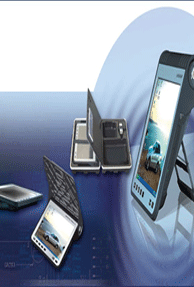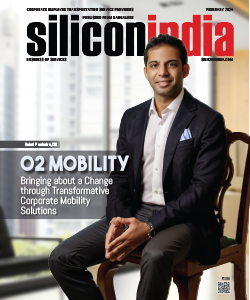Indian Businesses Embrace Mobile Computing Despite Risks

Bangalore- Symantec today announced the India results of its 2012 State of Mobility Survey, which revealed a tipping point in mobility adoption. The survey highlighted an uptake in mobile applications across organizations with half of Indian enterprises at least discussing deploying custom mobile applications and one-third currently implementing or have already implemented custom mobile applications.
Despite this adoption, more than half (53 percent) of survey respondents mentioned that mobility is somewhat to extremely challenging and a further 40 percent of survey respondents identified mobile devices as one of their top three IT risks. Yet in the face of these challenges, IT is striking a balance between mobile benefits and risks by transforming its approach to mobility to deliver improved business agility, increased productivity and workforce effectiveness.
“Mobility, with its clear business benefits, has caught the imagination of the Indian business world and is here to stay,” said Shantanu Ghosh, VP and MD, India Product Operations, Symantec. “The question is no longer about allowing mobile devices in the workplace, but rather how to manage and secure devices and critical information effectively and mitigate risks in a 24X7-connected world.”
The State of Mobility Survey reveals the challenges organizations are grappling with in accommodating the mobility tipping point and also identifies and quantifies mobility-associated risks as perceived by IT decision makers. In this survey, more than 6,000 organizations from 43 countries (250 in India) bring to light the change in the usage of mobile devices and mobile applications.
Some of the key observations were that Mobile Devices Now Critical Business Tools, Mobile Initiatives Significantly Impacting IT Resources and Mobility Risks Impacting Organizations
Some key recommendations include:
Enable broadly: Mobility offers tremendous opportunities for organizations of all sizes. Explore how you can take advantage of mobility and develop a phased approach to build an ecosystem that supports your plan. To get the most from mobile advances, plan for line-of-business mobile applications that have mainstream use. Employees will use mobile devices for business one way or another – make it on your terms.
Think strategically: Build a realistic assessment of the ultimate scale of your mobile business plan and its impact on your infrastructure. Think beyond email. Explore all of the mobile opportunities that can be introduced and understand the risks and threats that need to be mitigated. As you plan, take a cross-functional approach to securing sensitive data no matter where it might end up.
Manage efficiently: Mobile devices are legitimate endpoints that require the same attention given to traditional PCs. Many of the processes, policies, education and technologies that are leveraged for desktops and laptops are also applicable to mobile platforms. So the management of mobile devices should be integrated into the overall IT management framework and administered in the same way – ideally using compatible solutions and unified policies. This creates operational efficiencies and lowers the total cost of ownership.
Enforce Appropriately: As more employees connect their personal devices to the corporate network, organizations need to modify their acceptable usage policies to accommodate both corporate-owned and personally-owned devices. Management and security levers will need to differ based on ownership of the device and the associated controls that the organization requires. Employees will continue to add devices to the corporate network to make their jobs more efficient and enjoyable so organizations must plan for this legally, operationally and culturally.
Secure comprehensively: Look beyond basic password, wipe and application blocking policies. Focus on the information and where it is viewed, transmitted and stored. Integrating with existing data loss prevention, encryption and authentication policies will ensure consistent corporate and regulatory compliance.
Symantec’s 2012 State of Mobility Survey was conducted by Applied Research from August-November 2011. The results are based on 6,275 organizations in 43 countries in North America, EMEA (Europe, Middle East and Africa), Asia Pacific, Japan and Latin America. Among small businesses, they spoke with the person in charge of IT. Among enterprises, we contacted senior IT and C-level professionals. For the purposes of this survey, mobile devices refer to handheld devices such as the Blackberry Smartphone, iPhone, Android, iTouch and other similar devices. Laptops are not included in the definition of mobile devices.



